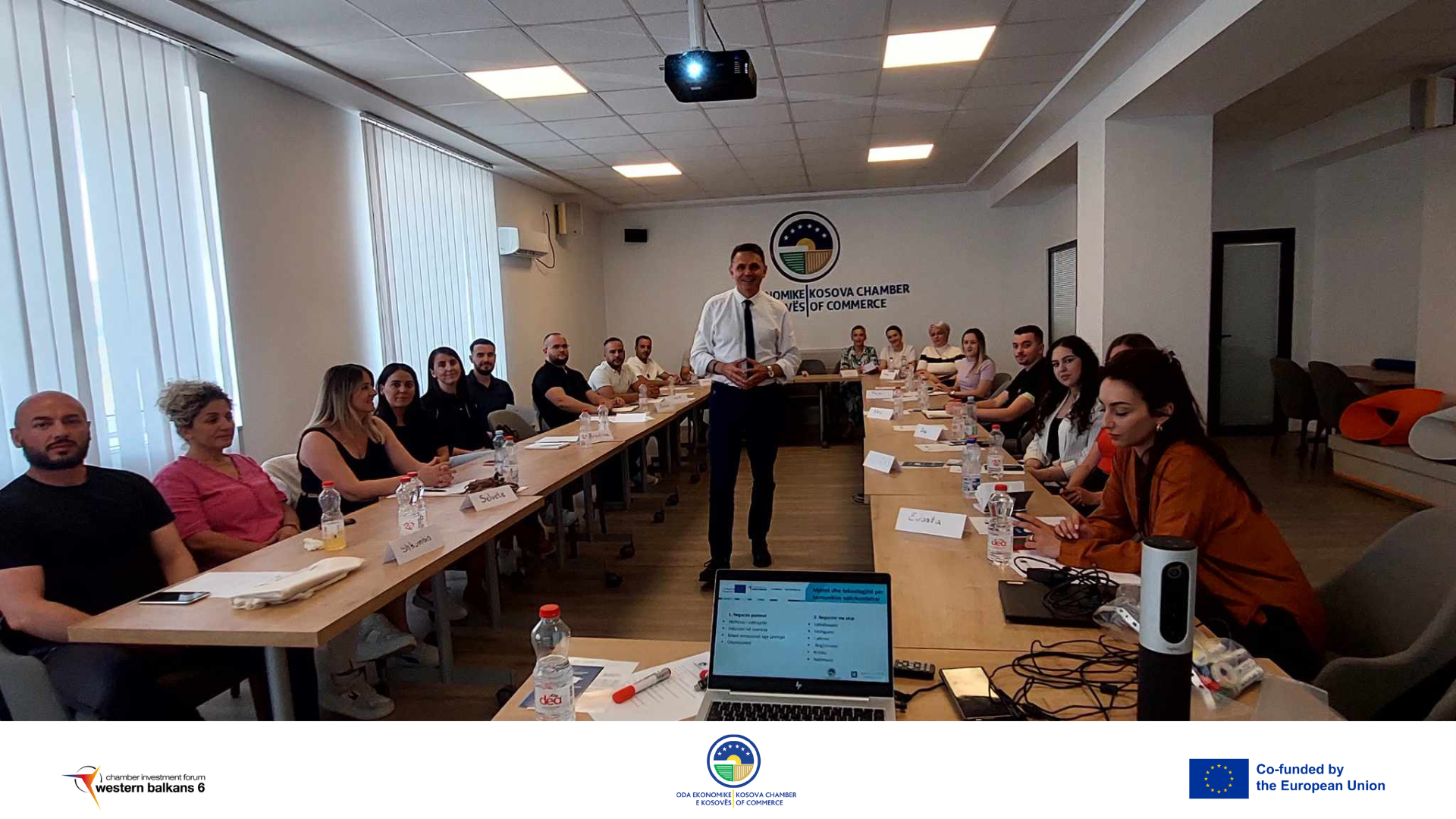
The Role of Communication in International Trade: Insights from the Kosova Chamber of Commerce Training Day
The Kosova Chamber of Commerce, in cooperation with the Western Balkans 6 Investment Forum and with the support of the European Commission, held a Training Day on June 12th themed “The Role of Communication in International Trade.” The aim was to uncover for participating companies from different sectors the details of communication strategies essential for leveraging the complex dynamics of international trade.
During the training more than 20 participants had the opportunity to gain valuable knowledge about the importance of intercultural communication in international trade negotiations. They explored strategies to overcome language barriers and foster clear communication channels, essential for smooth interactions and successful negotiations. Additionally, the training emphasized the role of effective communication in building and maintaining robust international business relationships. Participants were provided with practical tools and techniques to enhance their communication effectiveness, highlighting how clear, consistent communication can strengthen partnerships and drive business growth.
The agenda covered a wide range of critical topics essential for mastering communication in international trade. These included understanding the role of communication in commercial negotiations, the impact of effective communication on negotiation outcomes, and the key elements of successful communication in a trade context. Participants also learned about the development of effective communication strategies and how to identify and implement strategies that enhance trade relationships. Tailoring communication approaches to different cultural and business contexts was another significant focus, along with overcoming common communication barriers in international trade. Techniques to recognize and overcome these barriers were thoroughly examined.
The training also delved into cultivating persuasive communication skills, including the art of persuasion in commercial negotiations and strategies to develop and utilize persuasive techniques effectively. Practical exercises such as role-playing scenarios and analyzing participants’ performance provided hands-on experience. The role of body language and other non-verbal cues in negotiations was also discussed, teaching participants how to read and use non-verbal communication to their advantage. The day concluded with a Q&A session, allowing participants to clarify any remaining questions and solidify their understanding of the topics covered.
The companies that participated in the training, with the knowledge gained on enhancing their communication skills and valuable insights into international trade, have paved the way for greater success in the global market.
This activity was implemented within the framework of the Project: “EU support to WB6 CIF for the development of the Common Regional Market.”



